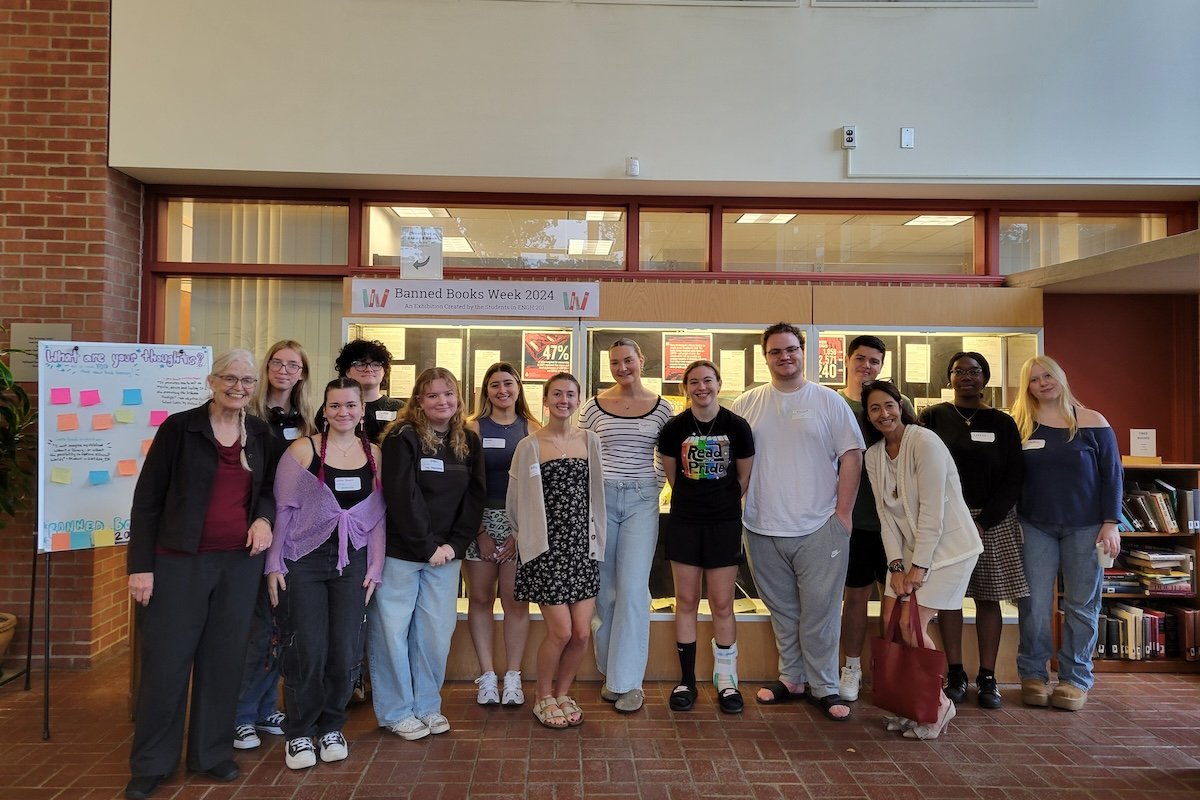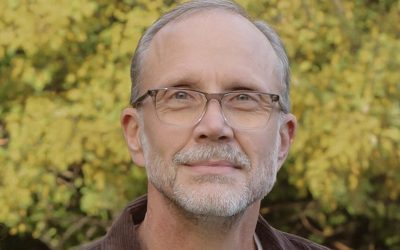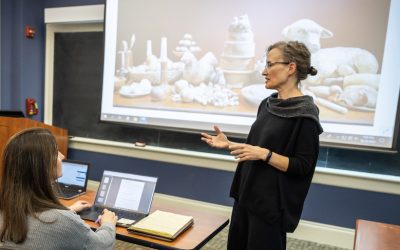The Community-Based Learning course studies the timely issue
November 2024 – Drew University’s unique course on banned books has combined with several campus events this semester to open up a discussion on the timely issue.
Banned Books: Race, Gender, and Sexuality Under Fire is a Community-Based Learning (CBL) course, supported by the Center for Civic Engagement, that looks at the dramatic increase in book bans and challenges across the U.S. over the last four years.
According to PEN America, a nonprofit raising awareness for the protection of free expression, the 2021-22 school year saw roughly 2,500 book bans or challenges, a number that has reached 10,000 this year.
“The course I’m teaching this semester asks students to think deeply about the freedom to read and the first amendment right for students to have full and unrestricted access to knowledge and educational resources,” said Wendy Kolmar, Drew’s Donald R. and Winifred B. Baldwin Professor of the Humanities, professor of English, director of women’s and gender studies, and co-director of the Center for Digital Humanities Scholarship and Pedagogy.
“It is also, in many ways, a course about how local decisions are made, how local government institutions work, and how students can have a voice in those processes.”
In addition to reading banned books and course material about the practice of book banning and censorship, both historically and currently, Kolmar organized a number of projects, speakers, and events for the class to get an up-close look at the issue.
As part of their coursework, students created an exhibit in the Drew Library for which each student researched a banned book and discussed it with visitors.
The class has also met with multiple organizations and individuals involved with the issue, including Stephen Chbosky, author of The Perks of Being a Wallflower, one of the books most frequently banned or challenged in the U.S.; an attorney at Penguin Random House leading the publisher’s suit against state legislation banning books in Florida and Iowa; a member of The Citizens Campaign who offered insight into how local government entities function and engage with citizens; and local school boards, librarians, and library directors with first-hand experience in facing attacks for books held in their schools and libraries.
In a November 11th talk open to the campus community, Jeremy Young, director of PEN America’s Freedom to Learn program, discussed academic freedom as an essential element not only to college life, but to American democracy at large. A former history professor and university administrator, Young’s presentation surveyed the national landscape of curriculum restrictions and “gag orders”, as well as government intervention in the curricula, governance, and autonomy of colleges and universities, exploring their consequences to free expression and American democracy.
“The Banned Books course has allowed me to see the topic of censorship from all angles through theoretical knowledge and real-world experiences and conversations,” said Emily Cookson C’26, an English and art double major. “Before this course, I may have taken for granted my ability to read any book. I feel far more knowledgeable about this political issue, and I feel far more prepared and impassioned to fight for the freedom to read.”
The exhibit on banned books will be on display at the Drew Library through the end of the fall 2024 semester.



